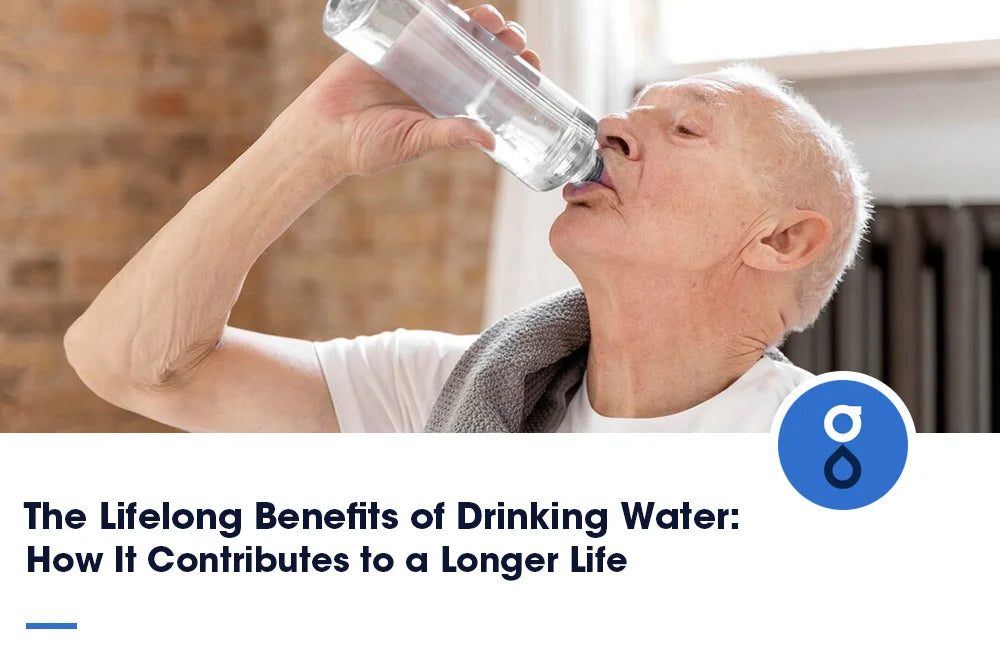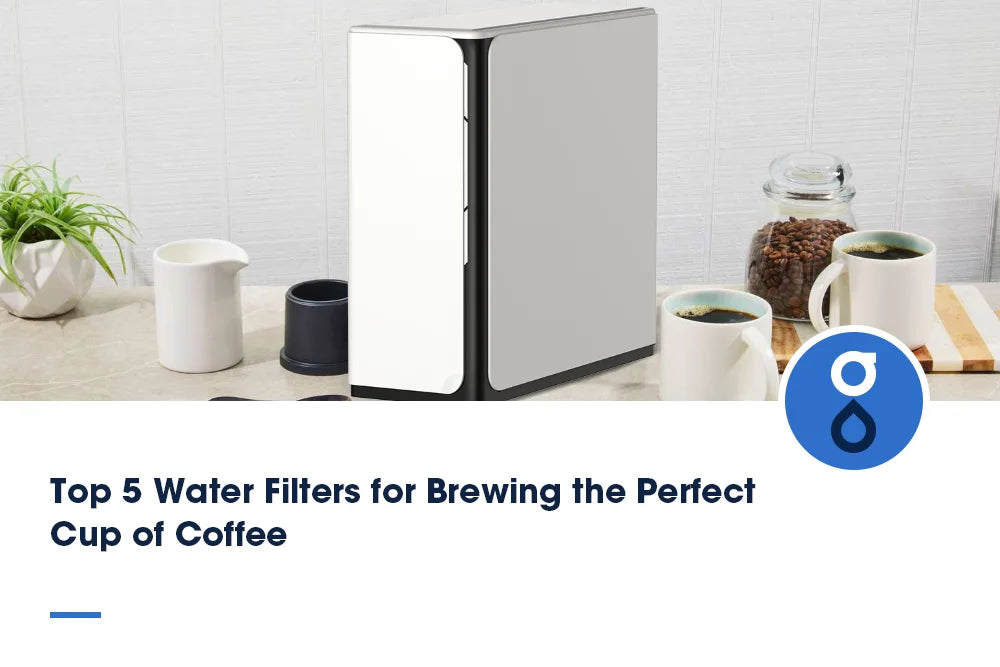Table of Contents:
Understanding Reverse Osmosis(RO) filtration
What do you need to know about the safety of RO water?
The health benefits of drinking RO water
The mineral loss concern: How does RO address it?
RO water vs. other filtered and bottled water: which is best?
Common myths and misconceptions about RO water
Conclusion
As more people seek clean and safe drinking water, reverse osmosis (RO) water filtration systems have become increasingly popular. These systems are used in households and industries to ensure the removal of contaminants from water. But is RO water truly safe and healthy to drink? In this blog, we'll explore the process, benefits, and potential concerns associated with RO water.
Understanding Reverse Osmosis(RO) filtration

Reverse osmosis is a water purification process that removes contaminants using a semi-permeable membrane. The reverse osmosis system typically consists of pre-filters, an RO membrane, and post-filters. During filtration, water is forced through the membrane, which blocks impurities such as heavy metals, chlorine, and fluoride.
Key benefits of RO technology:
· Removes up to 99% of contaminants such as lead, arsenic, and chlorine.
· Reduces unpleasant tastes and odors, improving water quality for drinking and cooking.
· Offers extra protection for sensitive populations, such as children, pregnant women and immuncompromised individuals.
What do you need to know about the safety of RO water?
Removal of contaminants
One of the primary benefits of RO water is its ability to remove a wide range of contaminants effectively. These include harmful substances like lead, chlorine, and bacteria, which can pose health risks if consumed in large amounts. Compared to other filtration methods, reverse osmosis systems are particularly effective at eliminating these impurities, making the water safe to drink.
Potential risks and concerns
A reverse osmosis system also strips water of beneficial minerals such as calcium and magnesium. This demineralization has raised concerns among some health experts, who argue that these minerals are essential for maintaining good health. However, it's important to note that most people obtain their essential minerals from food rather than water.
Safety regulations and standards
RO water filter systems are designed to meet strict safety standards set by organizations like the Environmental Protection Agency (EPA) and the World Health Organization (WHO). These standards ensure that the water produced by RO systems is safe for consumption, free from contaminants, and suitable for daily use.
The health benefits of drinking RO water
Improved taste and odor
One of the noticeable benefits of RO water is its improved taste and odor. Removing chlorine and other substances responsible for bad taste and smell makes RO water more pleasant to drink, encouraging people to stay hydrated.
Reduced exposure to contaminants
RO water reduces the risk of diseases associated with harmful contaminants by removing them. For example, lead contamination can cause serious health issues, especially in children. By using RO water, you can significantly lower your exposure to such contaminants.
Suitable for sensitive groups
RO water benefits sensitive groups, including individuals with weakened immune systems, infants, and pregnant women. The high level of purity offered by RO systems provides an extra layer of protection, ensuring that these vulnerable groups have access to safe drinking water.
The mineral loss concern: How does RO address it?
The role of minerals in drinking water
Natural water sources often contain minerals like calcium and magnesium, which benefit our health. However, the amount of these minerals in water is usually minimal compared to what we get from our diet. While RO water lacks these minerals, the overall impact on our health is negligible.
Alternative sources of essential minerals
For those concerned about mineral loss, there are several alternatives to consider. Most people can easily obtain necessary minerals through a balanced diet, rich in fruits, vegetables, and other nutrient-dense foods. Additionally, some RO systems come with a remineralization stage, adding essential minerals to the water and balancing purity with health benefits.
RO water vs. other filtered and bottled water: which is best?
Comparison with bottled water
RO water often compares favorably with bottled water in terms of quality and cost. While bottled water can be convenient, it usually comes with environmental concerns due to plastic waste. Under-sink RO systems provide a sustainable alternative, offering high-quality water without the environmental impact.
Comparison with other filtration methods
Various water filtration methods include carbon filters, distillation, and UV purification. Each method has its pros and cons. For instance, carbon filters effectively remove chlorine and improve taste, but they may not remove all contaminants. Distillation is another thorough purification method, but it can be energy-intensive. UV purification is excellent for killing bacteria, but does not remove chemical contaminants. RO systems offer a comprehensive solution by addressing both chemical and biological pollutants.
Common myths and misconceptions about RO water

RO water is acidic and harmful?
A common misconception is that RO water is overly acidic and harmful to health. While RO water can be slightly more acidic than tap water due to the removal of buffering minerals, it is still within a safe pH range for consumption.
RO water leaches minerals from the body?
Another myth is that drinking RO water can leach minerals from the body. However, there is no scientific evidence to support this claim. The body does not rely on drinking water as its primary source of minerals, and the amount obtained from food far exceeds what would be lost through drinking RO water.
Conclusion
In summary, reverse osmosis water is safe and healthy to drink. It effectively removes harmful contaminants, providing a high level of water purity. While it does remove some beneficial minerals, this is generally not a significant concern given that these minerals are readily available from a balanced diet. RO water is a good choice for those seeking clean, safe drinking water, particularly for sensitive groups who may be more vulnerable to contaminants. Visit Glacier Fresh for more water-safe drinking solutions.



















